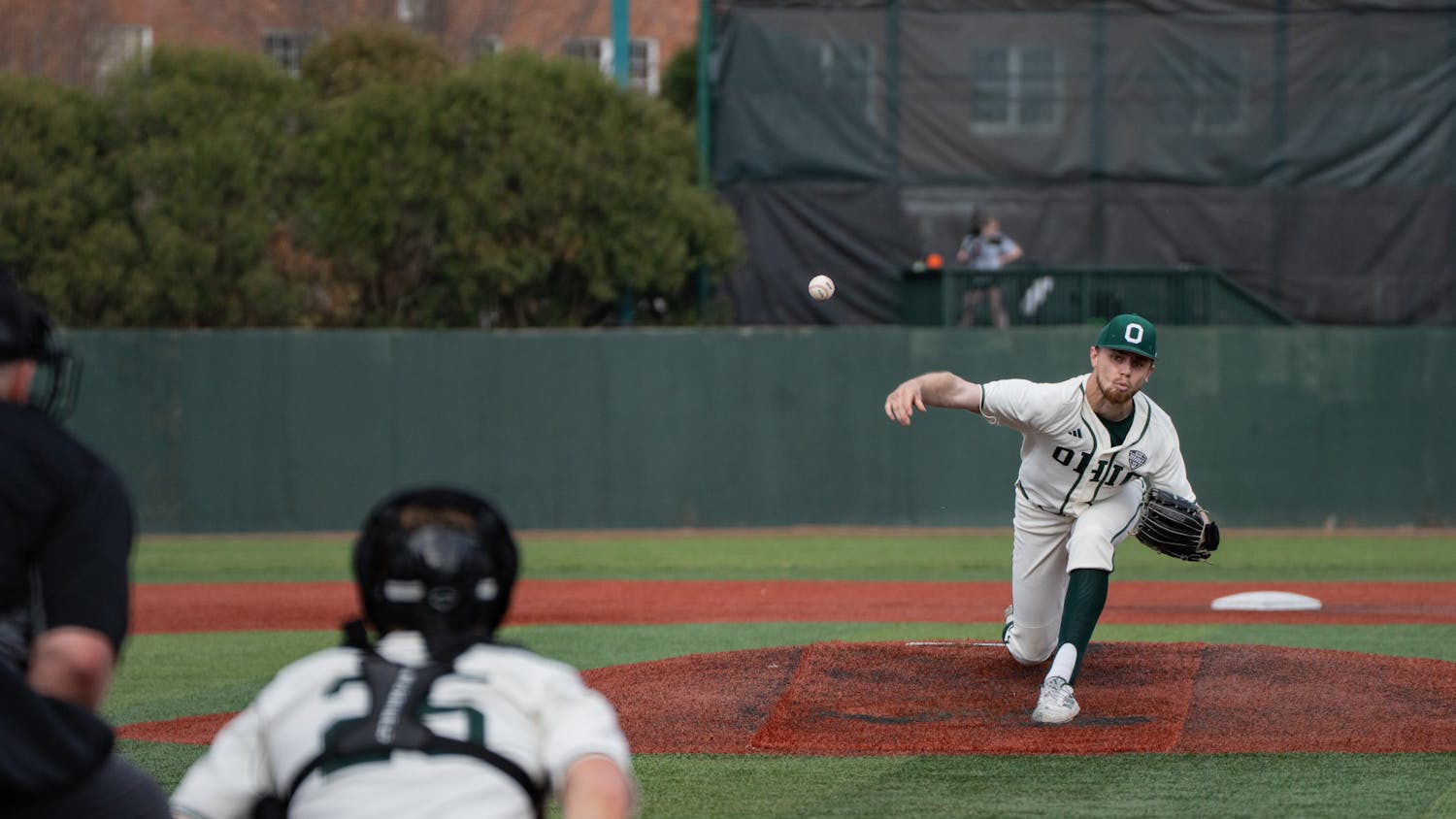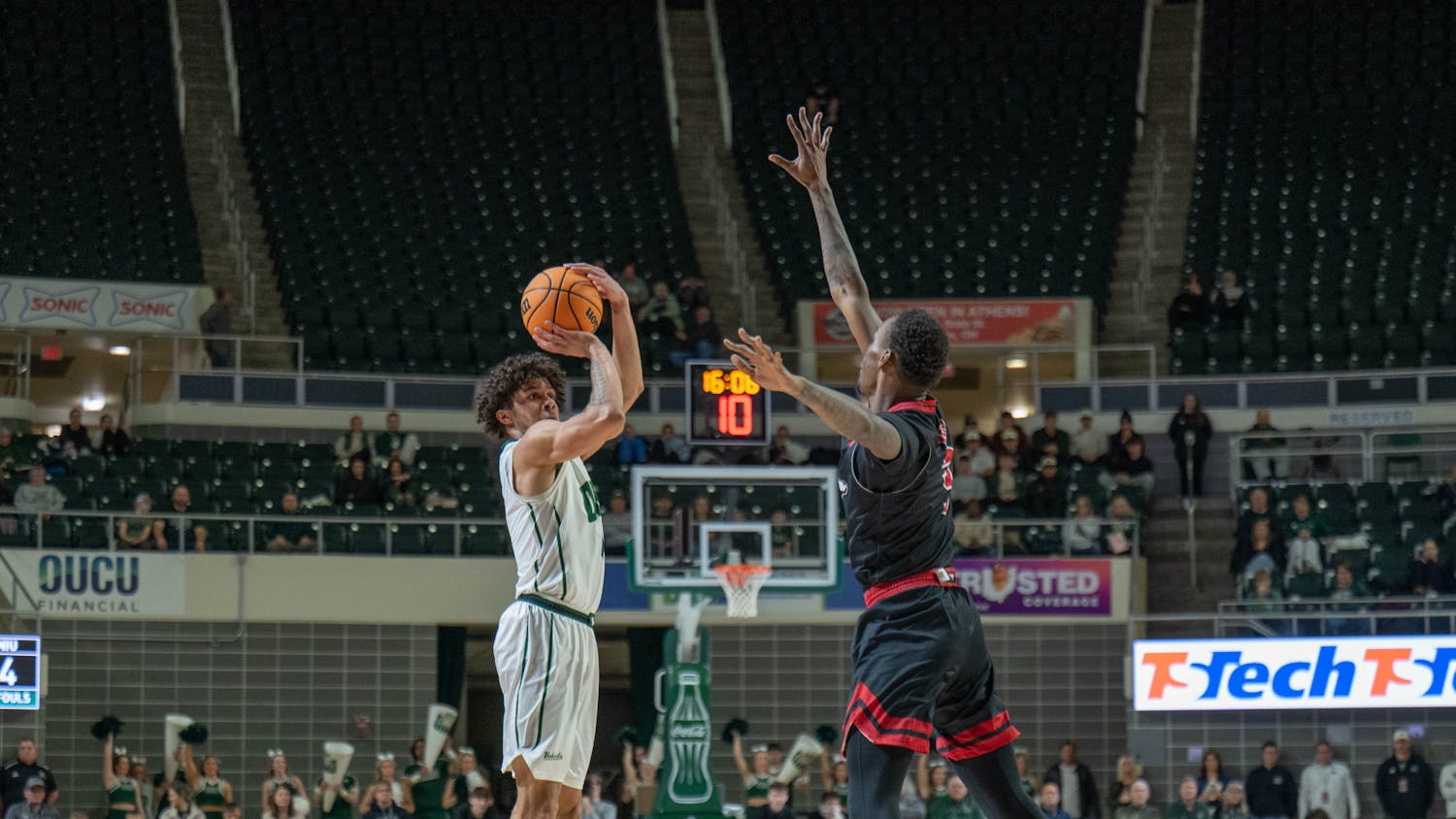Ohio Athletics and athletes, alike, have attempted to balance fair play on social media.
With the social media boom in full effect, it’s fairly common to find college students constantly on sites such as Twitter, Instagram and Facebook.
For Ohio University athletes though, it’s a little different when they're not only representing themselves online but also an entire team.
“We don’t have any monitoring policies in place,” Anthony Reynolds, Ohio’s assistant athletics director for media relations, said. “We do caution (the athletes) against any type of, obviously, derogatory or hot button type topics, and that’s more of a standpoint of protecting them.”
Reynolds said he sees the importance of being smart and making good choices on social media, adding that, “there’s a lot of athletes on there, professional athletes, that lose sponsorships.”
The NCAA and college sports are no strangers to social media controversy, especially on Twitter; there have been more than a few incidents that have landed several universities in the spotlight for the wrong reasons. Some examples include Cardale Jones, an Ohio State University football player, tweeting "Why should we have to go to class when we came here to play FOOTBALL, we ain't come to play SCHOOL, classes are POINTLESS," or Marlon Williams, a Texas Tech football player, tweeting: "Wondering why I'm still in this meeting room when the head coach can't even be on time for his on meeting."
Reynolds said what Ohio does to prepare its athletes for those who see them online is cautioning them against anything controversial.
“Certainly we want our fans to be able to see their personalities and learn about them, but sharing personal information and getting too personal, we try to caution them against that,” Reynolds said
Reynolds added that most of Ohio’s athletes are “pretty responsible” when it comes to social media.
Cody Walters, a redshirt senior who wrestles, “pretty much has it all” when it comes to social media, saying he has a Twitter, Instagram, Facebook and LinkedIn account. As an education major, he sees the importance of watching what he puts on social media.
“I want to be a future educator," Walters said. "I just don’t want anything to come back to haunt me one day, if I’m a teacher, and my students find something.”
He and his friend would frequently joke about how many followers they had, adding that he "gained a bunch of followers" after tournament wins or when he was named All-American for wrestling.
“The best thing about (social media) is, you know, it gets you out there," he said. "People can see who you really are.”
Another wrestler, redshirt senior Phil Wellington, said he's aware he represents OU with every post made public.
{{tncms-asset app="editorial" id="ab9b9f6a-9708-11e5-80e0-03088ddda37c"}}
“I do take that preventative measure," Wellington said. "I know that I’m part of an organization, and that I represent not only me, but my peers and my family. I can’t just post anything that I want to, like if I was just a normal student.”
For club sports, Coach Sean Hogan of the American Collegiate Hockey Association Ohio Hockey team said the club team does not have any specific guidelines in place either, but they do follow what they called the “Bobcat Rule.”
That “Bobcat Rule” is: “You are responsible for your actions. You will be held accountable for your actions and that of your teammates. Any action by a member of the Bobcat Hockey team that diminishes the perception and/or reputation of those we represent will be handled appropriately.”
Although, due to the occasional scuffle, tiff or miss-wording by an athlete, some universities have gone to various measures to regulate and guide their student athletes as far as social networking goes.
According to Myron Medcalf of ESPN, some schools even hire firms, such as Varsity Monitor, who work with certain universities to filter content on social media that may be an issue.
As stated on its website, “Coaches, Administrators and Sponsors need to ensure that Athletes uphold their organization’s standards and adhere to their code of conduct when using social media. Varsity Monitor provides monitoring services that help verify that policies are being followed.”
Another popular program used by universities is UDiligence, who, according to its website, is “the industry-leading social network monitoring service that helps collegiate athletic departments, coaches, compliance officers and the student-athletes all receive alert emails whenever a troublesome post occurs, so staff can address the issue before it becomes a bigger problem for the student-athlete and the athletic department.”
The company claims to only cost "pennies per day" for each athlete it is monitoring in order to make it affordable for virtually “any school at any level.”
The website includes a list of links to articles featuring student athletes who have had their reputations damaged due to their posts on social media.
Reynolds said he wouldn't consider using a site like Varsity Monitor because it "limits people's freedom."
“I think it’s much better to educate and then kind of have faith in your student athletes to make the right decisions than to try to police it," Reynolds said.
@JanieDulaney18
jd540914@ohio.edu






